What are Mother Rights and her Holy Possition in Islam?

As Islam is a great religion, it laid the foundations that ensure integrity of the Islamic community, that is why Islam has empowered and honored woman more than any other religion, as she has an important role in the Muslim community. Furthermore, woman has a valued and dignified role when she […]
Surah Al-baqara| Alzahrawan | Longest Surah in Quran
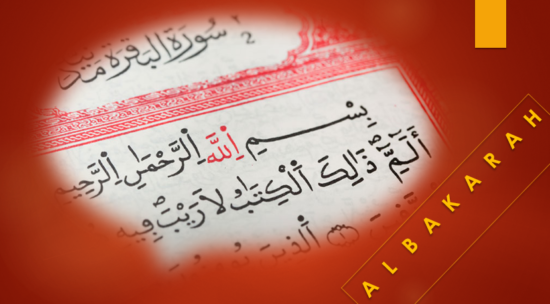
Surah Al-Baqara is the first Surah revealed in Medina, after Al-Hijrah, and it is the longest Surah in the Quran, and the second Surah in the arrangement of Surahs in the Quran. The longest verse in the Quran which is the verse of debit and is called \”Ayat Al-Mudaynah\”, is located in […]
Woman in Islam and Quran and her role

Woman in Islam is so important due to her multiple roles, as she is a mother, a wife, a daughter, and a partner of a man in the Muslim community too. Woman before Islam: Throughout the human history before Islam, women were offend and treated as if they were not human beings, and they suffered […]
MADD JA’EZ MUNFASIL | MADD RULES | MUDOOD

What is the meaning of Madd? Madd means to prolong sound of some letters, these letters called “ Madd letters” What are letters of Madd? And conditions? there are 3 letters of Madd: الالف Alif letter should be sakin and preceded by Fataha. الواو waw letter should be sakin and preceded by damma. الياء Yaa […]
MADD WAJIB MUTTASIL | MADD RULES | MUDOOD
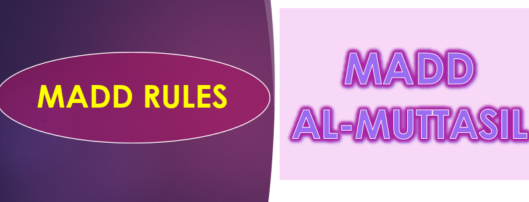
Meaning of MADD WAJIB MUTTASIL or Mandatory madd What is meant by word ” Wajib ” ? “ Wajib ” is an arabic word which means “Mandatory” What is meant by word ” Muttasil ” ? ” Muttasil ” is an arabic word which means “Joined”. Thus , Madd Wajib Muttasil is a mandatory madd […]
Madd AL-Aarid LL-Sukoon | Madd Rules| Mudood
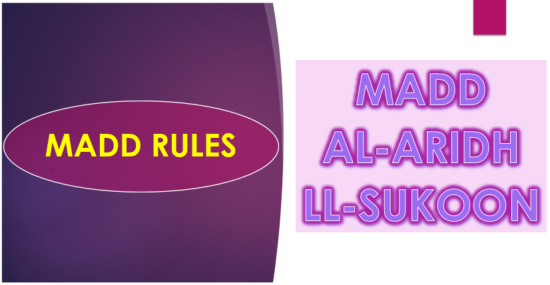
MADD AL-ARIDH LL-SUKOON what is meant by \”Madd AL-Aarid LL-Sukoon\” ? Madd Aridh Ll-Sukoon means \”temporary Madd for stopping ”. Conditions of Madd Aridh Ll-Sukoon : 1- (Madd Tabee’ee) (+) 2- (letter at end of the word) (+) 3- (Stopping at that word) Definition of Madd AL-Aarid LL-Sukoon: Aridh means temporary, so we can translate […]
Madd Al-Ewadh & madd rules (mudood)
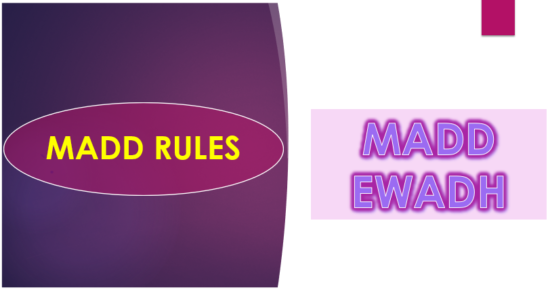
MADD EWADH Mastering Madd Al-Ewadh: Essential Mudood Rules for Quranic Recitation In the beautiful and rhythmic recitation of the Quran, the precision of pronunciation and the adherence to tajweed rules are paramount. Among these rules, the concept of “Madd” (elongation) plays a crucial role in ensuring the correct intonation and meaning. One of the important types […]
Madd Al-Badal | Madd Rules | Mudood
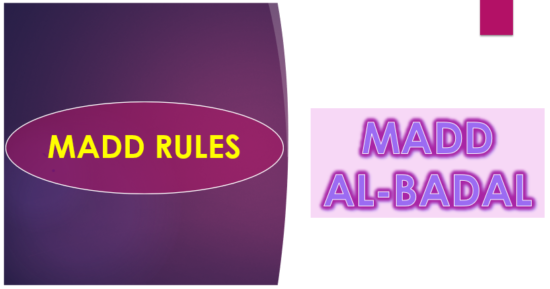
What is definition of Madd Al-Badal ? – Madd Al-Badal can simply be defined as every Hamza (ء) preceding a Madd letter . Madd Al-Badal, if not followed by a Saakin letter or Hamzah, is prolonged only 2 beats. Example:- (آمَنُوا)
Madd Tabee’ee: The Natural Madd in Tajweed | Al Mudood
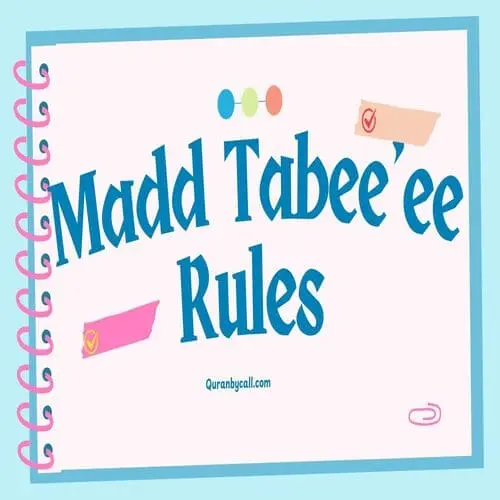
Madd Tabee’ee is a basic rule for any Quran reciter, this rule is a very common in the Quran and so easy to learn, So now What is the meaning of Madd word and Tabee’ee in Arabic language? What is the meaning of Madd Tabee’ee? Al-Madd means: Long or making the sound of some letters( […]
Meem Saakinah Rules | Izhar Shafawi | Ikhfaa Shafawi | Idgham
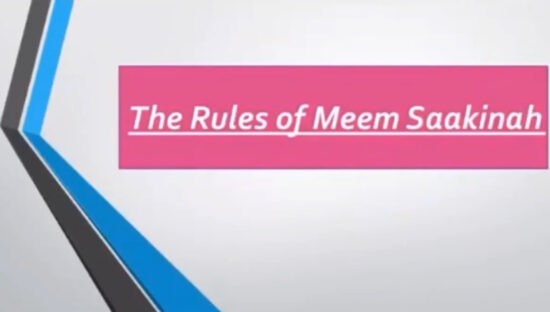
before learning Meem saakinah rules you should know “ what is meem sakinah?” It is a meem with no Harakah or a sign of sukoon on it, usually it comes by the end of the first word. Meem saakinah Rules what are forms of Meem Saakinah rules? Meem Saakinah rules are 3 different types […]
